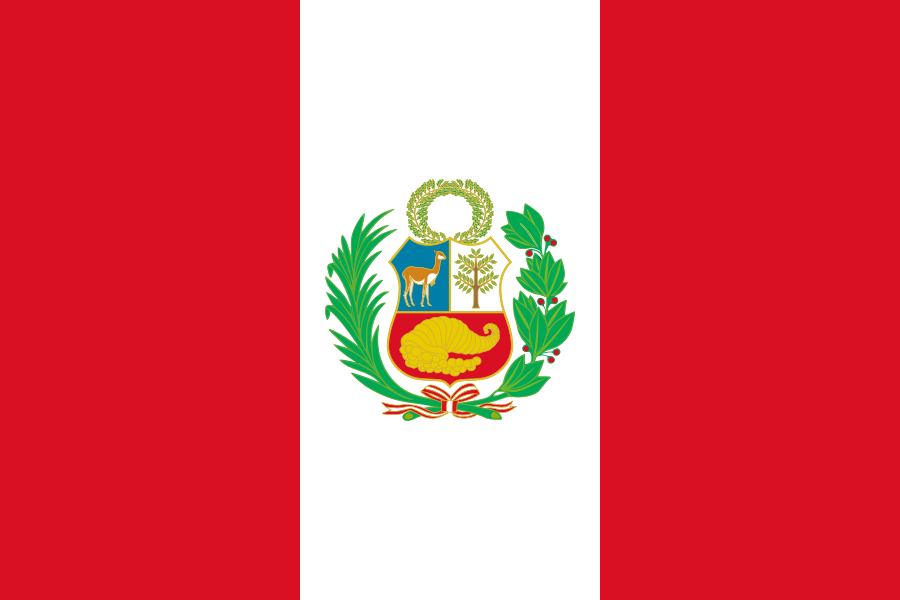Ancient Peru was the seat of several prominent Andean civilizations, most notably that of the Incas whose empire was captured by Spanish conquistadors in 1533. Peru declared its independence in 1821, and remaining Spanish forces were defeated in 1824. After a dozen years of military rule, Peru returned to democratic leadership in 1980, but experienced economic problems and the growth of a violent insurgency. President Alberto FUJIMORI's election in 1990 ushered in a decade that saw a dramatic turnaround in the economy and significant progress in curtailing guerrilla activity. Nevertheless, the president's increasing reliance on authoritarian measures and an economic slump in the late 1990s generated mounting dissatisfaction with his regime, which led to his resignation in 2000. A caretaker government oversaw a new election in the spring of 2001, which installed Alejandro TOLEDO Manrique as the new head of government - Peru's first democratically elected president of indigenous ethnicity. The presidential election of 2006 saw the return of Alan GARCIA Perez who, after a disappointing presidential term from 1985 to 1990, oversaw a robust economic rebound. Former army officer Ollanta HUMALA Tasso was elected president in June 2011, and carried on the sound, market-oriented economic policies of the three preceding administrations. Poverty and unemployment levels have fallen dramatically in the last decade, and today Peru boasts one of the best performing economies in Latin America. Pedro Pablo KUCZYNSKI Godard won a very narrow presidential runoff election in June 2016.
Peru is a presidential republic.
Source: CIA World Factbook
Members:
Resources
Displaying 181 - 185 of 201Decreto Supremo Nº 025/07/VIVIENDA - Reglamento de organización y funciones del Organismo de Formalización de la Propiedad Informal (COFOPRI).
El presente Decreto aprueba el Reglamento de organización y funciones del Organismo de Formalización de la Propiedad Informal (COFOPRI), que es el organismo encargado de ejecutar el proceso de formalización de la propiedad predial.
Ley Nº 29.071 - Crea el Bono de Formalización Inmobiliaria (BFI).
La presente Ley crea el Bono de Formalización Inmobiliaria (BFI), que consiste en la ayuda económica directa no reembolsable, otorgada por el Estado con criterio de utilidad pública, que se destinará exclusivamente para formalizar en el Registro de Predios de la Superintendencia Nacional de Registros Públicos (SUNARP), la declaratoria de edificación existente y su independización como unidad inmobiliaria.
Resolución Nº 183/07/VIVIENDA - Fusión entre el Proyecto Especial Titulación de Tierras y Catastro Rural (PETT) y el Organismo de Formalización de la Propiedad Informal (COFOPRI).
La presente Resolución da por concluido el proceso de fusión entre el Proyecto Especial Titulación de Tierras y Catastro Rural (PETT) y el Organismo de Formalización de la Propiedad Informal (COFOPRI), en calidad de entidad incorportante, declarando en consecuencia extinguido el PETT.
Implementado por: Decreto Supremo Nº 025/07/VIVIENDA - Reglamento de organización y funciones del Organismo de Formalización de la Propiedad Informal (COFOPRI). (2007-07-27)
Decreto Supremo Nº 019/07/AG - Reglamenta la Ley Nº 28.841, sobre adjudicación de terrenos eriazos a favor de agricultores afectados por obras hidroenergéticas o de irrigación.
El presente Decreto Supremo reglamenta la Ley Nº 28.841 sobre adjudicación de terrenos eriazos, por parte de proyectos especiales hidroenergéticos y/o irrigación, a favor de agricultores afectados por la ejecución de obras.
Resolución Nº 157/07/AG - Certificados de propiedad en casos de contratos de otorgamiento de terrenos eriazos.
La presente Resolución establece disposiciones relativas a la entrega de certificados de propiedad definitiva en casos de levantamiento de reserva de dominio o carga en contratos de otorgamiento de terrenos eriazos.


